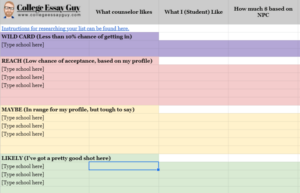Nestled within the hallowed halls of Florida State University, a vibrant tapestry of sorority life unfolds, enriching the campus experience with its traditions, camaraderie, and unwavering commitment to personal growth and community impact.
As we delve into the world of sororities at FSU, we’ll explore their storied history, delve into the recruitment process, and discover the unique contributions they make to campus life and beyond.
Sorority Culture at Florida State University
Sorority culture at Florida State University (FSU) is a rich and storied tradition that dates back to the early 20th century. The first sorority, Pi Beta Phi, was founded at FSU in 1903, and since then, over 20 sororities have been established on campus.
Today, sororities are an integral part of the FSU experience. Approximately 25% of undergraduate women are members of a sorority, and these women come from all backgrounds and majors. Sorority life offers a variety of benefits to its members, including social and academic support, leadership opportunities, and a sense of community.
History and Traditions
The history of sororities at FSU is closely intertwined with the history of the university itself. In the early 1900s, FSU was a small, all-male institution. However, in 1905, the university began admitting women, and by 1910, women made up over 20% of the student body.
As the number of women at FSU grew, so did the demand for social and academic organizations for women. In 1903, a group of women founded Pi Beta Phi, the first sorority at FSU. Over the next few decades, several other sororities were founded on campus, including Alpha Chi Omega, Kappa Alpha Theta, and Kappa Kappa Gamma.
Today, sororities continue to play an important role in the social and academic life of FSU. Sorority members are involved in a variety of campus activities, including student government, Greek life, and community service. Sororities also offer a variety of academic and social programs for their members.
Benefits of Sorority Life
There are many benefits to joining a sorority at FSU. Sorority members have access to a variety of social and academic resources, including:
- Social events and activities
- Academic support and tutoring
- Leadership opportunities
- Community service opportunities
- A sense of community
Sorority life can also help women develop important life skills, such as leadership, communication, and teamwork. Sorority members often go on to become successful leaders in their careers and communities.
Notable Sororities and Their Impact

Florida State University is home to a vibrant and diverse sorority community. Among the most prominent sororities are:
- Alpha Chi Omega: Known for its philanthropic efforts and leadership development programs.
- Chi Omega: A social sorority with a strong emphasis on sisterhood and academic excellence.
- Delta Delta Delta: A service-oriented sorority that focuses on community involvement and personal growth.
- Kappa Alpha Theta: A historic sorority with a strong focus on scholarship and leadership.
- Pi Beta Phi: A large and diverse sorority with a focus on leadership, scholarship, and service.
Contributions and Achievements
Notable sorority members at FSU have made significant contributions to the university and the broader community:
- Alumnae in Leadership Roles: Sorority members have held leadership positions in student government, the university administration, and local and national organizations.
- Philanthropic Impact: Sororities have raised millions of dollars for various charities and supported local initiatives.
- Academic Excellence: Sororities have consistently ranked high in academic performance, with members receiving scholarships and honors.
- Community Service: Sorority members have volunteered countless hours to local organizations and participated in service-learning projects.
Impact on Campus Life
Sororities play a vital role in campus life at FSU:
- Social Cohesion: Sororities provide a sense of community and belonging for their members.
- Leadership Development: Sororities offer opportunities for members to develop leadership skills and assume leadership roles.
- Academic Support: Sororities often provide academic support and tutoring for their members.
- Extracurricular Activities: Sororities organize a wide range of extracurricular activities, including social events, service projects, and academic competitions.
Impact on Broader Community
Sororities at FSU have a positive impact on the broader community:
- Community Involvement: Sororities engage in service projects and volunteer work in the local community.
- Alumni Networks: Sororities provide networking opportunities for alumni, fostering connections between graduates and the university.
- Community Service Initiatives: Sororities have launched community service initiatives that benefit local residents and organizations.
- Philanthropic Support: Sororities have donated funds and resources to local charities and organizations.
Recruitment and Selection Process

Recruitment for sororities at Florida State University is a multi-step process that typically begins in the spring semester. Prospective members, known as “PNMs” (Potential New Members), are invited to attend a series of events hosted by each sorority, where they can learn more about the organization and meet current members.
The selection process for new members is highly competitive. Sororities consider a variety of factors when selecting new members, including academic performance, leadership experience, and personal qualities such as kindness, empathy, and respect. PNMs who are selected for membership will receive a bid from the sorority, which they must accept in order to become a member.
Tips for Prospective Members
Prospective members who are interested in joining a sorority at FSU should begin preparing for the recruitment process early. Here are a few tips:
- Attend all of the recruitment events hosted by the sororities you are interested in.
- Be yourself and let your personality shine through.
- Be respectful of the current members and other PNMs.
- Dress appropriately for the recruitment events.
- Prepare a brief introduction that you can share with the sorority members.
- Be prepared to answer questions about your academic performance, leadership experience, and personal qualities.
Sorority Housing and Facilities
Florida State University offers a variety of housing options for sorority members, including traditional sorority houses, on-campus apartments, and university-owned houses. Each type of housing provides unique amenities and benefits, catering to the diverse needs of sorority women.
Sorority houses at FSU are typically located in the Greek Village, a designated area near campus that is home to many sororities and fraternities. These houses vary in size and style, but they all offer a range of amenities, including private bedrooms, shared living spaces, kitchens, and study areas. Some sorority houses also have swimming pools, fitness centers, and other recreational facilities.
On-Campus Apartments
Sorority members can also choose to live in on-campus apartments, which are located throughout the FSU campus. These apartments offer a more independent living experience, with individual bedrooms and shared common areas. On-campus apartments are typically more expensive than sorority houses, but they offer the convenience of being close to classes and other campus amenities.
University-Owned Houses
In addition to sorority houses and on-campus apartments, FSU also owns a number of houses that are available for sorority use. These houses are typically located off-campus, and they offer a more affordable option for sorority members. University-owned houses typically have fewer amenities than sorority houses, but they still provide a comfortable and convenient living environment.
Unique Housing Solutions
Some sororities at FSU have implemented unique housing solutions to meet the needs of their members. For example, one sorority has partnered with a local developer to build a new sorority house that is designed to be sustainable and energy-efficient. Another sorority has converted an old hotel into a sorority house, which provides members with a more spacious and luxurious living environment.
Philanthropy and Community Involvement

Sororities at Florida State University are deeply involved in a wide range of philanthropic initiatives and community service projects, making a significant impact on both local and global causes. These initiatives provide opportunities for members to engage in meaningful volunteer work, develop leadership skills, and foster a sense of responsibility towards their community.
Community Outreach and Service
Sororities at FSU actively participate in community outreach programs, partnering with local organizations to address social and environmental issues. They organize food drives, volunteer at homeless shelters, participate in environmental clean-ups, and provide support to underprivileged communities. Through these initiatives, sorority members not only make a positive difference in the lives of others but also develop valuable skills in teamwork, problem-solving, and communication.
Commonly Asked Questions
What is the history of sororities at FSU?
The first sorority at FSU, Alpha Xi Delta, was founded in 1916. Since then, 20 sororities have established chapters on campus.
What is the recruitment process like for sororities at FSU?
The recruitment process at FSU is highly competitive, with formal and informal events designed to help sororities and potential new members get to know each other.
What are the benefits of joining a sorority at FSU?
Sororities at FSU offer a wide range of benefits, including social connections, leadership opportunities, academic support, and community involvement.




